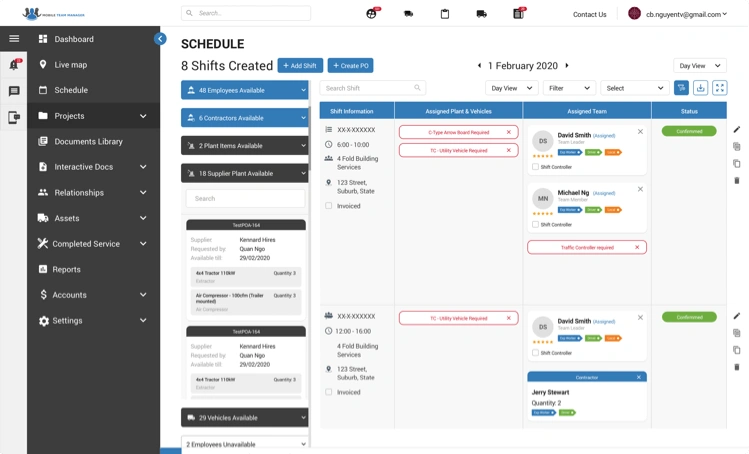-
OVERVIEW
-
SERVICES
-
MODELS
-
WHY CHOOSE US ?
-
OUR PROCESS
-
TECHNOLOGIES
-
FAQS
Saigon Technology - Your Trusted Software Development Outsourcing Company
Saigon Technology is a globally recognized and ISO-certified software outsourcing company. We have delivered outstanding solutions since 2012. During the years, we have served over 300 clients in the USA, the UK, Germany, Australia, Singapore, and other countries.
Plus, with three centers in Ho Chi Minh and Da Nang, we have over 350 engineers at competitive rates in the area. Our extensive expertise has helped us successfully deliver more than 800 projects across various industries. We are confident in starting every project with affordable prices.
In 2024, we transferred 40+ developers under the BOT model. We have spent 13 years sharpening our skills, industry expertise, and staff management. With all these ingredients, we have an amazing recipe for success. Choose us, and you can access excellent custom software development outsourcing experiences.
Our Software Outsourcing Models
Staff Augmentation
Team augmentation lets you quickly add skilled outsourcing developers to your in-house team. These software development outsourcing services help you avoid the costs and delays of traditional hiring. In this manner, you pay based on the hourly rate of the outsourced developer.
Ideal for businesses that:
- Want to scale fast
- Need niche expertise, like Python, Java, .NET, or React
- Manage temporary or unpredictable workload spikes
- Handle different projects without stressing internal teams
- Minimize HR-related time and cost
How it works:
1. We provide qualified candidates based on your needs.
2. Once approved, we onboard them in just 7-10 business days.
3. Our developers follow your directions.
Dedicated Development Team
Looking for experts without a cumbersome hiring process? We can help you build a full team that consists of developers, QA engineers, project managers, DevOps, and UI/UX designers. Our team adopts Agile methodologies for continuous feedback and improvement. This way, you can ensure full control, seamless integration, and long-term commitment.
Ideal for businesses that:
- Need full-time resources for complex objects
- Want more control over the outsourced team's performance
- Aim to streamline the resource allocation process while staying agile
- Prefer predictable, low-cost development
How it works:
1. We recruit the right talent, onboard, and align the software engineering outsourcing team to your culture. This step also involves clearly defined collaboration roles to fit your workflow.
2. Our Project Manager leads the team and reports directly to you to ensure a smooth collaboration process.
3. As you focus on growing your business, we assist you with solutions on software development, HR, infrastructure, and administration.
Fixed Price Model
The fixed price model is a project-based outsourcing approach. You get a clear development plan for your pre-defined scope. So, no surprises in the end because we execute your project with a fixed budget and set timeline.
Ideal for businesses that:
- Have a clear project scope.
- Ideal when fast and accurate time and budget estimation is required.
- Want low-risk, full process outsourcing.
- Prefer minimal management overhead with clear accountability.
- Struggle with strict launch deadlines.
How it works:
1. We start with a discovery session. From there, our PM quotes bottom-up estimates and top-down estimates based on all key cost factors.
2. Once the project starts, we ensure clear daily and weekly communication. We use modern communication and project management tools to keep everything on track. You receive consistent updates, milestone tracking, and clarity.
Real Results: Our Case Studies

Healthtech - SaaS EHR platform
- Industry: Healthcare
- Challenges: The client needed a mobile app with user-friendly UI, drag-and-drop scheduling, mobile PDFs, messaging, NLP, and calls.
- Solutions: Our team built an EHR SaaS using React Native and SignalIR. We combined Agora video/audio, e-signatures, and LUIS-powered NLP. During the project, we adhered to agile project management processes and prioritized scalability.
- Results: We developed a modern, award-winning solution that enabled seamless communication, scheduling, and updates. It's a key portfolio project. The platform provides updates between doctors and patients, working as an intelligent personal assistant.
- Read the full case study (PDF)

Personal Loan Platform
- Industry: Fintech
- Challenges: The client needed to scale a senior outsourcing team of 20 members in 3 months. We also had to modernize a complex legacy system, manage complex documentation, and work on third-party integrations with rare techs like KOA and Clojure. Time zone differences posed a lot of issues, too.
- Solutions: We streamlined hiring, implemented targeted learning, and fostered active legacy tech training. Saigon Technology and the client had regular meetings to share daily progress.
- Results: Smooth delivery earned excellent reviews. Our experienced teams and microservices architecture ensured flexibility and smooth collaboration. This is one of our outstanding true success stories in software outsourcing collaboration.
- Read the full case study (PDF)

SCM Portal
- Industry: Transportation and Logistics
- Challenges: The client wanted to develop an internal system integrating with their ERP and SAP solution. We had to manage complex system workflows and a dynamic Excel UI. The client also asked us to integrate teams despite dependencies and required deep technical and domain expertise.
- Solutions: Our team worked closely with stakeholders, created scalable databases, reduced dependencies, and managed scope. Synthetic test data also contributed to a smooth development process.
- Results: This case study earned internal accolades for solving complex workflow issues. The PR-PO workflow helped the client manage requisitions efficiently. The software can track shipments, handle withdrawals, generate RFQs, compare quotes, and track delivery statuses.
- Read the full case study

Skin Analyzing System
- Industry: Healthcare
- Challenges: The client required a skin analysis system to detect and efficiently evaluate skin conditions.
- Solutions: Our team utilized AI, computer vision, and deep learning with PyTorch, ONNX, NumPy, and OpenCV. We then deployed the solution on the Streamlit platform for easy access and usability.
- Results: The tool now supports skincare experts with accurate results. It uses imaging, machine learning, and data analysis to support personalized skincare. It's one of our real-life success stories, led by our experienced project managers.
- Read the full case study

Music Recommendation Systems
- Industry: Entertainment
- Challenges: Users struggled to find relevant music in massive libraries. Thus, the system aimed to recommend music that truly matched individual tastes.
- Solutions: We developed a platform using Python, Streamlit, Numpy, Pandas, and Scikit-learn. Our solution used user data and collaborative filtering to provide personalized music suggestions.
- Results: The system successfully understands user behaviors. By using machine learning and data analysis, it offers personalized song and artist suggestions to enhance engagement. It met all client requirements and marked the beginning of a long-term partnership centered on innovation.
- Read the full case study

Mobile Team Manager ODC
- Industry: Field Management
- Challenges: The client wanted to replace manual processes with a full-featured, remote field management system.
- Solutions: We built a cloud-based app for real-time scheduling, messaging, and reporting. After three phases, we switched to Scrum for ongoing updates.
- Results: The platform launched smoothly and now supports businesses with similar needs. It's how outsourcing software development can turn complex field operations into streamlined solutions.
- Read the full case study

SmithBot
- Industry: Fintech
- Challenges: The client needed a secure web app with a user-friendly subscription UI. Moreover, the client wanted to master crypto trading, handle APIs, avoid IP bans, and enhance AWS CloudWatch logs.
- Solutions: Our robust app features smart caching, a multi-tenant setup, and an NGINX gateway for seamless fallback.
- Results: The web app linked the client's automated crypto trading bots with end users and exchanges. It's proof that innovative software development outsourcing solutions can power complicated cryptosystems.
- Read the full case study
Other Success Stories
2025 AI Integration Pitch Deck: Proven Solutions for Healthcare & Fintech

Why Choose Saigon Technology to Outsource Software Development?
 Start with a Fixed-Price PoC and a Two-Week Risk-Free Trial Before Commitment
Start with a Fixed-Price PoC and a Two-Week Risk-Free Trial Before Commitment
Want to try before you commit to outsourced software development? You can start with a small PoC first. Our fixed-price model gives you the freedom to grow at your own pace. We also offer a two-week risk-free trial. Thus, you can evaluate your team first. It's the perfect way to explore outsourcing developers without pressure. You can interview candidates to set up your dream team.
 Over a Decade of Global Outsourcing with 800+ Software Projects
Over a Decade of Global Outsourcing with 800+ Software Projects
Saigon Technology has been a trusted partner for over 13 years. We have a proven track record in working with remote clients. For over a decade, we've successfully delivered more than 800 development projects across various industries, such as finance, healthcare, and e-commerce. Our portfolio includes 160+ mobile app development projects and 150+ web app development projects. We have also offered 85+ dedicated teams and 40+ developers via the BOT model.
Read more about our portfolio and client feedback on Clutch!
 Diverse Experience Across 10+ Sectors with Measurable Impact
Diverse Experience Across 10+ Sectors with Measurable Impact
We have handled hundreds of projects. Our team knows the industry-specific methodology that best matches your needs. You can also reduce risks like project overruns, delivery delays, and resource gaps. No worries about IP protection issues, quality inconsistencies, and time zone challenges as well.
Explore our featured projects across different industries!
 Cost-effective and High-Quality Solutions (from $29/hr)
Cost-effective and High-Quality Solutions (from $29/hr)
Outsourcing to Vietnam saves you more. You can access the global talent pool at a friendly cost. Our pricing ranges from $29 to $46 per hour, which is much lower compared to the US and EU markets. Developers at Saigon Technology have at least 3 to 4 years of experience. Based in Ho Chi Minh and Da Nang, they are ready to serve clients. You can ensure fast turnaround, quick support, and complete flexibility.
 Hire the Top 1% of IT Talent
Hire the Top 1% of IT Talent
As an experienced software outsourcing company, Saigon Technology only hires from the top 1%. Our team is strong in tech, fluent in English, and excellent at communication. Each member passes tough rounds with both our TA and tech leads. The client is involved, too. We will also grow our talent pool by hosting career fairs at top universities in 2025.
 Globally Certified for Quality and Data Security (ISO 9001 & 27001)
Globally Certified for Quality and Data Security (ISO 9001 & 27001)
 Scalable Engagement Models for Specific Business Needs
Scalable Engagement Models for Specific Business Needs
We keep things flexible. You can choose the outsourcing model that works best. Your options include staff augmentation, a dedicated team, and project-based outsourcing. With client-centric flexibility, you can get reliable services with whichever model you choose.
 Agile & DevOps for Efficient, Scalable Software Development
Agile & DevOps for Efficient, Scalable Software Development
We use the Agile process and DevOps tools to keep projects fast and flexible. Our certified Scrum teams work in sprints. Thus, we can adjust quickly in response to your feedback. With CI/CD automation, we speed up testing and deployment. You can cut delivery time by up to 40%. Additionally, we utilize tools such as Jira and Slack to ensure seamless outsourced software development.
 Cutting-Edge Technological Solutions
Cutting-Edge Technological Solutions
Our expert solution architects thoroughly examine every project. Therefore, we can help you find the best tech fit for a software development lifecycle, including back-end, front-end, app development, blockchain, and DevOps. Need to build on Microsoft Azure, run on AWS, or explore AI-powered analytics? We've got it covered! We even have a department that works on AI development solutions for industries like healthcare and fintech. Technological advancement will give you an edge.
 Good English Communication
Good English Communication
Saigon Technology has collaborated with clients from the United States, the United Kingdom, Australia, and Singapore. Our team has excellent English skills to ensure smooth communication. Our outsourcing software development team communicates clearly and understands Western culture. Plus, we offer 24/7 support and maintenance services. And we're still here for you after delivery. Our post-launch support makes sure your system runs smoothly all the time.
 Excellent Project Management for On-Time Delivery
Excellent Project Management for On-Time Delivery
We’ve received awards from Clutch and DesignRush as a top software development company in Vietnam and across Asia. With us, you're never alone. We have received a lot of positive feedback on on-time delivery. Our skilled project managers and tech leads guide each project. These key team members use proven project management processes to keep things smooth. You can also expect clear plans, regular check-ins, and zero surprises.

Trusted by Our Clients
Client Feedback and Testimonials
Industries We Support
Our Expert Software Development Outsourcing Services
Custom Software Development
Unlike other providers, we are always ready to customize any new project requirements, thanks to our Agile-driven flexibility. Our custom software development outsourcing services include everything from front-end and back-end to system integration. We create industry-specific, scalable, and customized solutions that give you a true competitive edge.
Web Application Development
With outsourcing software development, you ensure a smooth experience across both the front-end and back-end for every project. Our web development outsourcing experience is built on hundreds of successful projects. We deliver full-stack solutions with responsive UI, secure architecture, and scalable performance. Our team works with modern frameworks and agile processes. You will have user-friendly and outstanding apps that grow with your business.
Mobile App Development
Saigon Technology uses cross-platform frameworks and APIs to enable fast mobile app development and quicker time-to-market. Outsource your software development to our team for native and cross-platform apps. Our solutions are powered by Flutter, Kotlin, Swift, and many other cutting-edge technologies. We perform UX research and stick to an agile process. This way, you can ensure efficient collaboration from start to deployment.
AI & Machine Learning
We work on AI and machine learning to solve real business problems. Using TensorFlow and PyTorch, we create fast, low-risk MVPs and PoCs. Want predictive analytics or computer vision? We have it all! Our solutions involve advanced systems to support data-driven decisions. Our strong investment in AI development for the fintech and healthcare sectors will make you shine.
MVP Development Services
No one can predict the success of your product. And MVP development services come to the rescue. Our MVPs help startups validate ideas quickly and affordably. You will get agile teams, great UX design, and scalable tech, all within weeks. We focus on what matters the most: core features and real user feedback. It means less risk and more investor interest. With a startup outsource software development, you can grow fast!
SaaS Application Development
Building complex SaaS products is easier with Saigon Technology as we have experience, cutting-edge technologies, and high-quality resources. We cover ideation, deployment, and support with full development capabilities. Our experts use modern stacks and cloud software infrastructure to create multi-tenant, scalable apps. With 13 years in the game, we are the dream team you need for your software outsourcing project.
QA and Software Testing
Need an expert team that guarantees your final product works powerfully and is free of bugs? Our QA engineers make that happen. Saigon Technology utilizes both manual and automated testing methods. Our certified testers handle everything, from test planning to post-launch support. We ensure stable UAT environments, full test coverage, and timely delivery. Choose us, and you will reduce release risks while meeting global standards.
DevOps Development Services
Want to speed up your software delivery while ensuring stable performance in real environments? Saigon Technology offers DevOps outsourcing solutions that boost collaboration. We support you immediately via email or WhatsApp whenever issues arise. You can also streamline your process for large-scale application management. Our engineers set up CI/CD pipelines, handle containerization, and add security automation. With tools like Jenkins and Docker, you will get faster releases and less downtime.
Hire Software Developers
Looking for top developers? Saigon Technology helps you hire pre-vetted talent with experience in back-end, front-end, mobile, and DevOps. Our outsourcing approach aims for speed and trust. With over 400 engineers, we match your needs and scale seamlessly. If you have any feedback on the current software engineering talent, we offer policies to provide more suitable resources.
Software Support and Maintenance
We are available 24/7 to ensure your software runs smoothly and securely. We take care of SLA-backed incident response, system monitoring, patching, and performance tuning. Tools like New Relic and Jira help our outsourcing developers keep your software reliable and ready to thrive.
Benefits of Outsourcing Software Development vs. In-House Development

 Access to the Global Talent Pool
Access to the Global Talent Pool
Skip the hiring headaches. According to Gartner, 56% of software leaders are searching for AI talent. You can work with software development outsourcing companies to quickly access a global talent pool with specialized tech expertise. Your outsourcing vendor connects you with engineers skilled in AI, IoT, and cloud computing. For example, Saigon Technology's experts have experience with platforms like AWS, Microsoft Azure, and TensorFlow. They invest in ongoing training and certifications, so you don't have to.
 Cost Efficiency
Cost Efficiency
Want better cost optimization? Outsourcing development helps you save big, up to 40%, compared to in-house hiring. The rate can go lower if you outsource to companies in countries with low labor costs, like Vietnam. With this approach, you don't have to spend on recruitment, training, and high infrastructure costs. You also lower expenses on employee retention. This cost-effective solution will help you grow without the overhead stress.
 Focus on Core Operations
Focus on Core Operations
You can free up your internal team by outsourcing software development to a skilled development team. Professional outsourcing developers like Saigon Technology handle the heavy tasks. With our support, your staff can focus on business growth and customer experience. Some studies indicate that outsourcing can lead to a 25% increase in efficiency. You can easily scale and achieve greater resource optimization, too.
 Scalability Without the Hiring Bottleneck
Scalability Without the Hiring Bottleneck
Struggling with seasonal spikes, rapid growth, and new product launches? Scalability is super important in these cases. With end-to-end software outsourcing, you will set the speed, skill, and zero delays. Thanks to our team augmentation and dedicated team models, you can scale your team size as needed. These cross-functional teams adapt flexibly to keep your project on track.
 Faster Time-to-Market
Faster Time-to-Market
Time is money. With outsourcing models like staff augmentation, you have experts by your side. They focus on your goals using their extensive expertise and experience. Moreover, your partner works in quick iterations and follows continuous stakeholder feedback. It means faster development, better results, and a shorter path to success. For example, when working with us, you provide deadline expectations. Then, we commit to ensuring on-time delivery.
 Outsourcing Specialized Tasks to Boost Productivity
Outsourcing Specialized Tasks to Boost Productivity
When outsourcing, you have specialized talent to handle every step, from technical analysis to delivery. Your vendor offers strategic project management and effective knowledge transfer. Thus, the whole process will be smooth. With the right specialist skills and a strong technology roadmap, you can move fast.
 Risk Reduction
Risk Reduction
As you outsource programming projects, you reduce security, operational, technical, and financial risks right away. The outsourcing contract clearly addresses all potential risks from the start. A trusted software outsourcing partner uses secure coding. For example, when partnering with Saigon Technology, you have global expertise and strong data protection. Our experts ensure quality assurance workflows and transparent project governance. This way, there is no scope creep, delay, or budget overrun.
 Latest Technology Adoption
Latest Technology Adoption
Software development outsourcing gives you access to the newest technologies. Saigon Technology, as a global company, has served clients across industries. We continuously share and learn new trends to keep up with the latest technologies like AI, ML, DevOps, Cloud, and IoT. With our help, you can accelerate development speed and boost efficiency.
 Quality Assurance
Quality Assurance
Building a skilled in-house QA team for your discrete project can be very costly. But you can work with a professional outsourcing company. Our testers run thorough tests, including unit, integration, security, and user acceptance testing, with proven testing methodologies. The testing team also shares detailed QA reports and participates in sprint reviews. They protect your ideas through careful documentation and strong intellectual protection.
 Continuous Support and Maintenance
Continuous Support and Maintenance
With outsourced software development, you will get full 24/7 support. Our experts have strong communication skills and offer quick response times. They fix bugs, install security patches, and handle issues, regardless of your location, thanks to smart time-zone alignment. So, when you need help during busy times, your partner's got your back. Even after launch, your software is still in good hands.
Our Software Development Outsourcing Process
Project Kick-Off
It all starts with a meeting to make sure we are on the same page. Our project manager (PM) and BA define goals and build a clear roadmap. We rely on clear documentation and open communication to guide the way. With a skilled team and good planning, we set the stage for project success.
Business & Requirements Analysis
Next, we analyze your business needs, user goals, and market trends. We create a Work Breakdown Structure (WBS) to track deliverables and milestones. If you are working on an RFI or RFP, we can also help. Plus, we tap into our internal knowledge base to offer smart solutions tailored to your unique needs. It's how we make outsourcing software development effective.
Terms of a Contract Discussion
Together, we align on the project's development strategy. After analyzing your requirements and technical feasibility, we sit down to define the following:
- Development methodologies (Agile, Scrum, Waterfall)
- Project scope and deliverables
- Timeline and resource allocation
- Budget estimation and cost transparency
All terms, from IP rights to NDAs and SLAs, must be clear. You make the final decisions. After agreeing on everything, we outline a contract as a shared roadmap for a smooth outsourcing experience.
PoC / MVP Launch (Upon Request)
We often start with a PoC or MVP to validate your idea. Our team helps you choose essential features to build the software and test it. This approach also allows you to learn from real user feedback and fix issues early. We use agile methods and focus on UX design. You can sharpen your idea and plan better for the complete software.
Software Development
This stage is where your ideas turn into high-quality, scalable software. We work in short cycles using Agile processes like Scrum and Kanban. Here's what we do:
- Follow coding rules to create clean, organized code
- Save everything in protected code repositories like Git
- Perform code reviews, unit testing, and automated CI/CD deployment
- Share updates through sprint demos and client check-ins
You are part of the software development process during all key code moments. This way, your product always stays on track.
Testing and Quality Control
At every step, we check your software for quality. Our team uses both manual and automated methods, along with risk modeling scenarios, to catch issues early. In this stage, we carry out these tasks:
- Build smart test cases for all key features
- Run tests in our CI/CD pipeline
- Use tools like Azure DevOps and Jenkins to streamline testing
- Test in real-life scenarios before going live
Thanks to our QA processes, security testing, and DevOps practices, you get fewer bugs and more stable launches.
Software Deployment
We take care of system setup, data migration, and testing. Our DevOps team also uses automated pipelines with CI/CD tools for faster outcomes. Depending on your project, we pick the right solution, including canary, blue-green, or rolling. Before launch, we simulate real use. Then, we monitor performance and fix issues.
Launch and Maintenance
After launch, we watch how the system runs, fix any problems, and use a support management model to keep everything working smoothly. Our team works with third-party tools and APIs. If something goes wrong, our incident response gets involved, as defined in the SLA. We ensure strong knowledge transfer, too. You receive comprehensive documentation, walkthroughs, and onboarding sessions.
Our Insights
FAQs
What are the four types of outsourcing?


Software development outsourcing services come in four types, depending on the location of the software outsourcing company:
- Offshore: Your partner is in a distant country and works in a different time zone.
- Nearshore: You work with a vendor in a nearby country.
- Onshore: Your partner operates in the same country and time zone.
- Hybrid outsourcing: This model combines the benefits of overseas, nearshore, and onshore approaches.
How much does IT cost to outsource software development?


The cost of outsourcing IT services varies significantly depending on your specific needs. For example:
- Basic apps or MVPs: $10,000 – $50,000
- Mid-size apps: $50,000 – $200,000
- Enterprise apps: $200,000 – $1,000,000+
The rate also depends on the outsourcing model you choose. The average hourly rates for developers, according to their location, are as follows:
- Overseas (Asia, Eastern Europe, Latin America): $28 – $49/hour
- Nearshore (Mexico to the USA, Eastern to Western Europe): $40 – $70/hour
- Onshore (The USA, Canada, Western Europe): $80 – $150+/hour
Timeline and team size affect the pricing, too. You need to pay more for extra services like DevOps, QA analysis, and consulting, or cloud enablement/optimization.
What are the prevailing trends in outsourcing software development?


Current IT outsourcing trends include:
- AI development solutions.
- A rise in cloud computing.
- Increased demand for Agile and DevOps practices.
- A focus on cybersecurity.
- A shift towards more strategic, long-term partnerships rather than transactional engagements.
How does Saigon Technology ensure data security and confidentiality?


We perform various security measures in SDLC processes to safeguard your data.
- Legal Protection: We start with NDA agreements and Non-Disclosure Agreements (NDAs) to ensure confidentiality from day one. Full IP protection and complete ownership transfer are always part of the deal.
- Strong Technical Security: We handle your data with end-to-end encryption, role-based access control, and secure source code repositories. Our systems follow ISO 27001-supported security management practices.
- DevSecOps: Our DevSecOps pipeline integrates protection at every phase. We apply CI/CD processes to keep your software safe.
- Multiple Testing Methods: We use both automated testing and manual testing to find and fix issues fast. Through regular software audits and troubleshooting, we stay ahead of any problems. Our ISO 9001 shows our dedication to quality.
- Transparency: We always share updates on our security compliance protocols. Open communication ensures you’re never left in the dark.
What are the rates for different experience levels (Senior/Middle) at Saigon Technology?


When you're outsourcing software development, we keep everything transparent and fair. Our rates follow industry standards and local benchmarks:
- Senior Level ($34–$46+): With more than five years of experience, these engineers lead and solve complex problems with ease.
- Mid-Level ($28–$34): Talented engineers with over three years of experience excel in both coding and communication.
How can I determine the most fitting engagement model at Saigon Technology for my project?


You need a clear outsourcing model to make your choice easier, whether you are planning for a small project or end-to-end software outsourcing. Here are some steps to take:
- Understand what your project needs.
- Ask our experts for recommendations on the most suitable model.
- Think about your project size, budget, size, and control.
What is Saigon Technology's process from candidate selection to onboarding?


Saigon Technology aims to build a team of skilled, forward-thinking software developers for full-process outsourcing. The hiring process is as follows:
1. Creating a Talent Strategy: We plan with care to match your business goals. Our COM team posts jobs on top sites to find talent.
2. Talent Discovery: We look to developers who are eager to learn. This step involves reviewing their skills and past work.
3. Talent Acquisition: We check soft skills like teamwork, communication, and English skills. This way, the chosen engineers can fit your team culture.
4. Assessing Expertise: This evaluation round focuses on multiple aspects, such as:
- In-depth skills exploration: Our tech leads give hands-on tasks to test their coding, thinking, and creativity. We assess their domain experience, technical English, and AI capabilities.
- Clear competency evaluation: We check tech and soft skills.
- Offer and acceptance: We also check communication, management skills, and willingness to grow.
5. Pre-Onboarding: We send job offers, discuss salary, and confirm agreements.
6. Onboarding: The new developers join company training, meet mentors, and learn business goals. We set clear KPIs from the start. Regular check-ins also help new hires become familiar with the process and environment.
7. Integration: With help from our tech leads, we ensure the best resource assignment for your project.
8. Launch Your Project: Your software development outsourcing team is ready. We provide ongoing feedback to support long-term success.































































